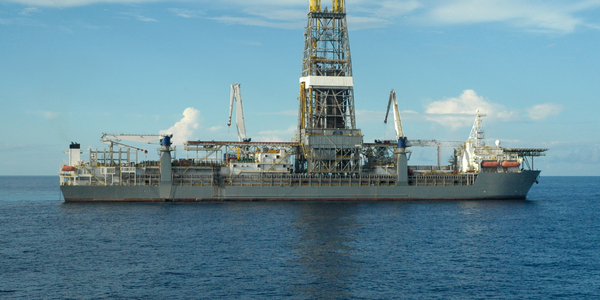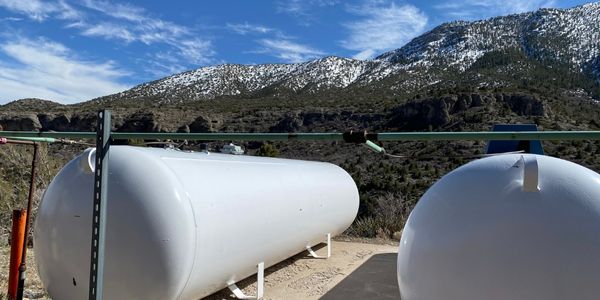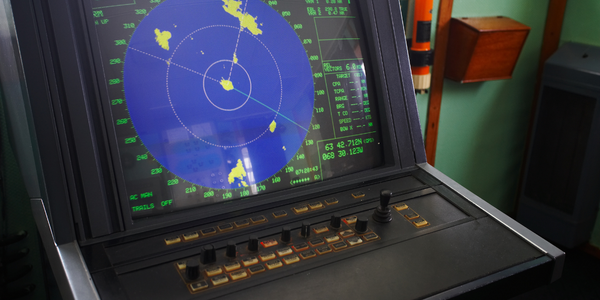Customer Company Size
Large Corporate
Region
- America
- Asia
- Europe
Country
- Germany
- Singapore
- United States
Product
- Compuware File-AID
- Compuware Test Data Management Solution
Tech Stack
- Mainframe Systems
- Distributed Systems
Implementation Scale
- Enterprise-wide Deployment
Impact Metrics
- Productivity Improvements
- Cost Savings
Technology Category
- Platform as a Service (PaaS) - Data Management Platforms
- Analytics & Modeling - Data-as-a-Service
Applicable Industries
- Marine & Shipping
Applicable Functions
- Logistics & Transportation
- Quality Assurance
Services
- Data Science Services
- System Integration
About The Customer
Hapag-Lloyd is a leading global container shipping company with an extensive network of 128 services worldwide. Founded over 165 years ago, Hapag-Lloyd has four regional headquarters in Hamburg, New Jersey, Valparaíso and Singapore and has a fleet of more than 175 container vessels. Operating from over 350 locations in 117 countries around the world, the firm has around 9,500 employees, who are connected through the most advanced IT systems in the shipping industry; with four key applications at their core. In order to ensure the delivery of high quality IT services, Hapag-Lloyd tests new application functionality using real data, a practice that helps ensure that issues are eliminated before any changes are put into production.
The Challenge
Hapag-Lloyd, a leading global container shipping company, needed to create a realistic and production-like environment for core IT applications without disclosing any potentially competitive information. The company tests new application functionality using real data, a practice that helps ensure that issues are eliminated before any changes are put into production. However, due to the high level of integration of Hapag-Lloyd’s IT environment, which consists of its mainframe and a range of distributed systems, this was a challenging task. A new challenge arose in 2014 when Hapag-Lloyd prepared for a potential merger. This made it necessary to extend existing training materials and create up-to-date live training data. The challenge was to create a realistic and production-like environment for core IT applications without disclosing any potentially competitive information. As a result, Hapag-Lloyd realized it needed a test data privacy/optimization solution that would allow it to securely share this information with a huge number of new employees around the world, while remaining compliant with its high standards of data protection.
The Solution
Hapag-Lloyd identified Compuware and their Test Data Management solution, which leverages data privacy and test data optimization product File-AID, as the best solution for its needs. The solution needed to not only extract data for testing and training, it also needed to disguise it. Maintaining compliance with current and future data privacy demands, while retaining business efficiency and flexibility were key success criteria for the data creation project. Key features and benefits included the ability to easily and securely create test data sets that are specific to each of its core applications, extract data from mainframe and distributed systems in-line with the relationship rules that govern how applications function in the production environment, create individual data privacy rules that mean only Hapag-Lloyd can get back to the original production data once it has been disguised, create a centralized catalogue of rules that determine how data is automatically disguised to ensure consistency across all systems, define all datasets and their relationships, while assigning rules for the extraction of test data samples to ensure consistency across the organization, and optimize test data to accelerate the testing and development process.
Operational Impact
Quantitative Benefit

Case Study missing?
Start adding your own!
Register with your work email and create a new case study profile for your business.
Related Case Studies.

Case Study
Drill ship power challenge: hybrid solution solves distribution issues
Aspin Kemp & Associates (AKA), a manufacturer of electrical power and control systems headquartered in Montague, PEI, encountered one with its hybrid power initiative, the first hybrid drill floor destined for installation on ultra-deepwater drill ships operated by Transocean, Swiss offshore drilling contractors. Since on-site modification was impossible and scrap recycling of any modifications was unacceptable, the enclosures had to arrive ready-to-install.

Case Study
Ensures Tanker Safety and Emissions Compliance
Storage tanks are irregular in shape and a certain amount of mathematical modelling is required to get an accurate representation of volume and, more importantly, the weight of material in each tank. In addition, countries have different emission regulations, so the ships position needed to be accurately known in order to geotag emission data.

Case Study
Real-time Networked Sonar System for Ships
A multinational, knowledge-based corporation that delivers marine electronics solutions is utilizing industrial Ethernet technology to help ensure that operations at sea are dependable and optimal. Based in Europe, the company has nearly 4000 employees working in 20 countries around the world, and produces high-tech systems for offshore oil and gas operations, merchant marine systems, and various applications for the defense and aerospace industries. The company produces products and systems used by merchant vessels and offshore installations for positioning, navigation, automation, as well as for surveying and monitoring the seabed, and for fishing vessels and fi sheries research. As one of the major suppliers of high quality marine electronics in the world, their products include chart plotters for yachts, triple redundant dynamic positioning systems for oil drilling rigs, and sonar and instrument systems for scientifi c research vessels. Products used for marine applications must be rugged enough to endure the corrosive effects of salt water, and be able to withstand excessive amounts of vibration and shock. For this reason, the company only uses DNV and GL certified products and components to ensure that their systems can meet the high standards required by the maritime industry.

Case Study
Fleet Management Connectivity Solution for Marzam
Marzam, in order to ensure the best service, invested 3 million dollars in the construction of 2 fuel oil tanks with 40k gallons and 10k gallons capacity each, located in Manta, Ecuador. The customer needs to keep fleet operations going with fuel available at all times in order to guarantee quality of service. KEY ELEMENTS FOR THE CUSTOMER: Real-time level monitoring: Tank infrastructure remote level monitoring. Configure alerts and notifications when reaching critical values to avoid the need for emergency refills and optimize supply schedules. Real-time consumption monitoring: The customer needed an easy way to monitor in real-time accurate values of consumption.

Case Study
Mitsubishi Electric's Edge Computing Solution Powered by Wind River VxWorks
Mitsubishi Electric Corporation, a global leader in factory automation (FA) applications, identified edge computing as a critical component of the Industrial Internet of Things (IIoT). The company aimed to enhance device and data security, reduce data traffic to the cloud, and enable faster response to network or device issues. In 2018, Mitsubishi Electric launched its first line of industrial hardware products designed for edge computing, the MELIPC Series. The primary development goals for MELIPC were to support the type of edge computing promoted by Mitsubishi Electric and to introduce advanced vision technology for device control. The flagship computer of the MELIPC line, the MI5000, was designed to combine real-time equipment control with high-speed data collection, processing, diagnosis, and feedback in a single machine. However, the development team needed a real-time control platform that could seamlessly integrate real-time control with proven analytic and diagnostic applications.

Case Study
Migrating to Software-Only Licenses for More Responsive License Management
The world’s premier shipping companies work with the software solutions of ABB Marine & Ports to get their vessels safely and efficiently to their destinations. A loyal customer of Wibu-Systems for over a decade, ABB has been relying on CodeMeter dongles to store the license keys for their ABB AbilityTM Marine Advisory System - OCTOPUS.The current version of the system is using Wibu-Systems’ robust metal-case CmStick ME, a perfect choice for the rugged conditions at sea. As satellite communications has made fast Internet connections at sea a common reality for maritime operators, the company is looking to move from physical to software solutions to streamline its logistics processes.







